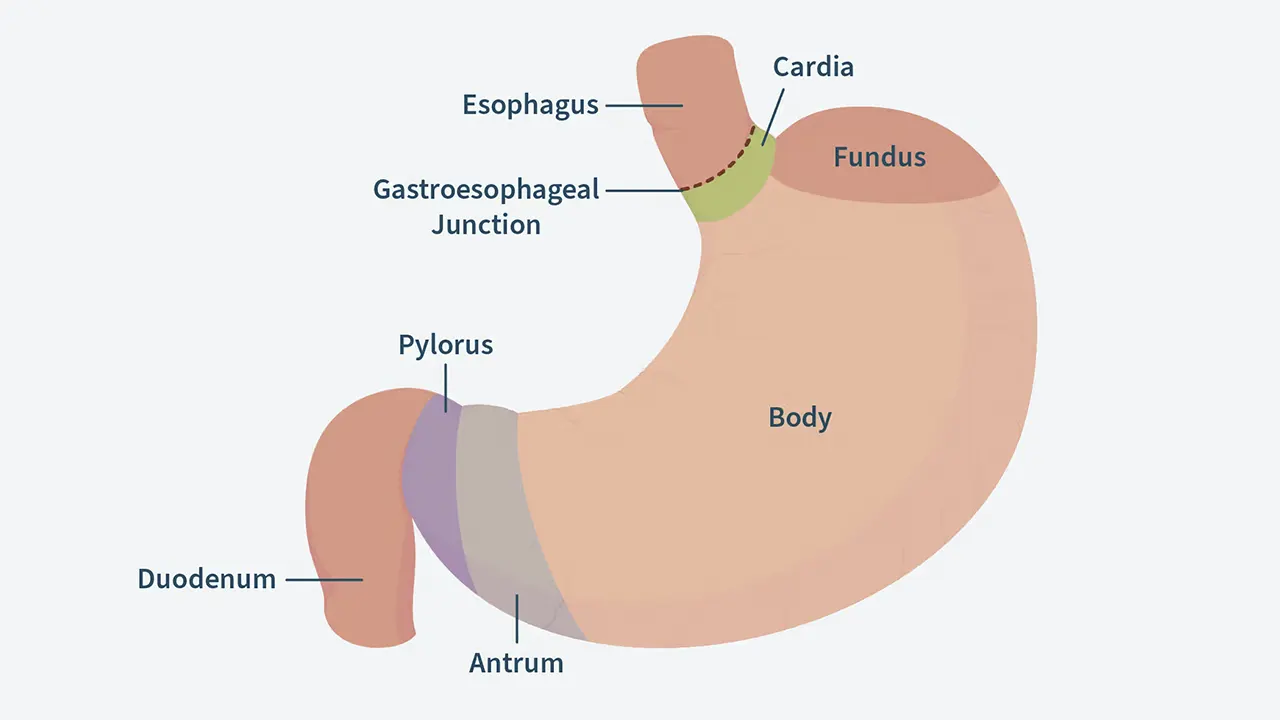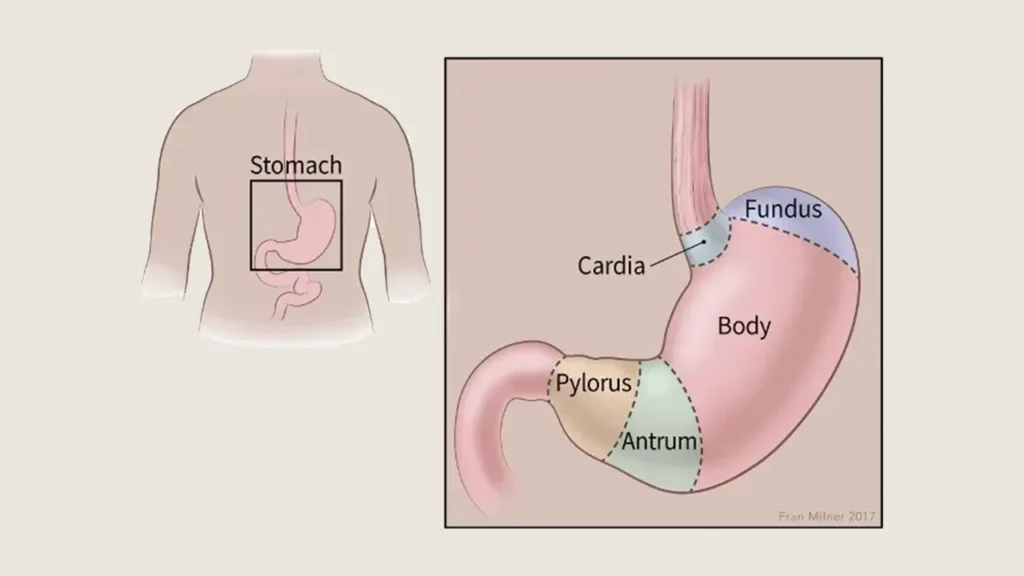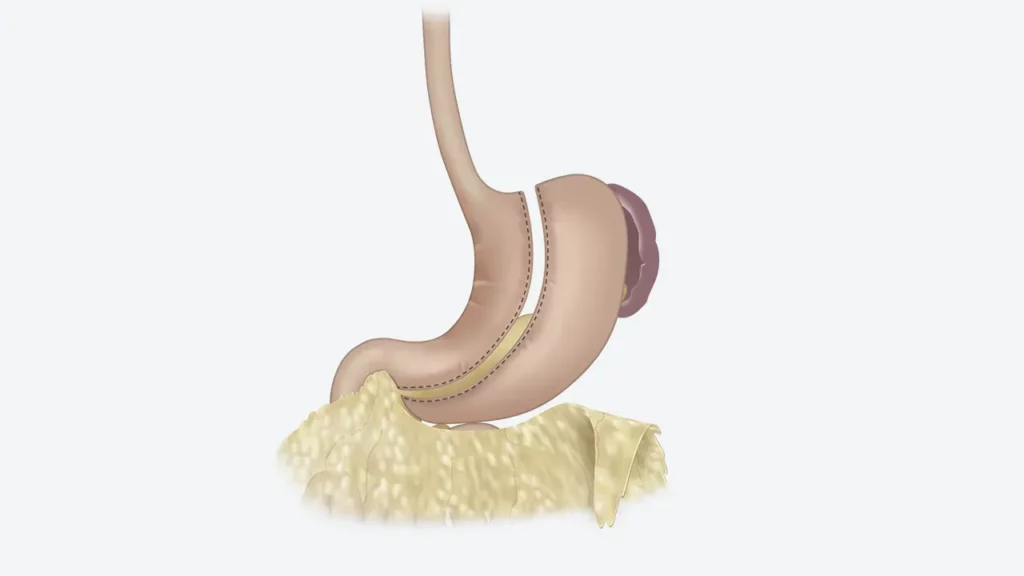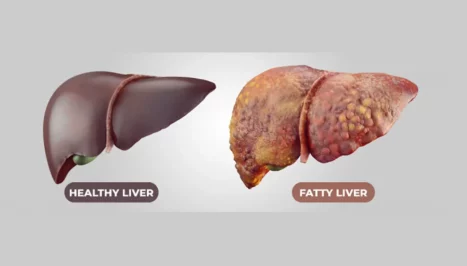Can the Stomach Stretch Again After Gastric Sleeve Surgery?

Fear of the stomach enlarging after bariatric surgery—potentially undoing all your hard work—is a common concern among patients who have undergone procedures like the gastric sleeve. This worry is completely understandable. The good news: your stomach will never return to its original giant size. The more important news: yes, it can expand slightly, but controlling this is entirely in your hands.
Understanding the Shape of Your Stomach After Surgery
To grasp this better, we need to understand what happens to the stomach during gastric sleeve surgery. In this procedure, the surgeon removes about 80% of your stomach. The part removed is mostly the upper and outer portion called the fundus.
The fundus is highly elastic and works like a balloon:
- It expands easily to accommodate large amounts of food.
- It is also the main producer of the hunger hormone ghrelin.

What Remains After Surgery
After surgery, what remains is a narrow, banana-shaped tube. Its capacity reduces from roughly 1,500 cc (about a large soda bottle) to around 100–150 cc (slightly more than half a cup).
Interestingly, this new stomach is still muscular. Like any other muscle in the body, if you consistently overstretch it, it can enlarge slightly over time. This is a natural physiological process and can explain stomach dilation after bariatric surgery.

The Key Point
Since the main elastic part of the stomach is removed, any expansion is minimal and limited. Your stomach will never, I repeat never, return to its original large size.
Why Do Some People Regain Weight After a Few Years?
This is the biggest misconception about stomach dilation after bariatric surgery. If the stomach can only expand slightly, why do some patients experience weight regain years later?
The answer almost always comes down to one word: habits.
Long-term success doesn’t depend on the size of your small stomach—it depends on your brain and the new relationship you build with food.
Your Golden Window After Surgery
Gastric sleeve surgery gives a “honeymoon” period of 6–18 months. During this time:
- The stomach volume is very small
- Hormonal changes, especially the sharp drop in ghrelin, make weight loss easy and hunger manageable
This period is meant to help you establish new eating habits. If you don’t, your brain will find ways to bypass the physical limits of your small stomach, and problems will arise.
Main Enemies That Cause Stomach Stretching
Certain eating habits are the primary causes of stomach dilation after bariatric surgery. They are more dangerous than their direct effect on stomach size—they lead to extra calorie intake and weight regain:
1. Overeating and Ignoring Fullness Signals
After surgery, your body sends early fullness signals, which can include:
- Mild pressure in the upper abdomen
- Sensation of fullness in the throat
- Burping
- Hiccups
- Runny nose
Ignoring these and continuing to eat “just one more bite” stretches the stomach wall over time. Instead of eating to fullness, learn to eat to satisfaction.
2. Drinking Liquids With Meals
One of the most common mistakes causing stomach dilation after bariatric surgery. Drinking liquids with solid food:
- Overfills the stomach, putting pressure like a water balloon
- “Washes” food quickly into the intestine, making you hungry sooner
Golden rule: maintain a 30-minute gap between drinking and eating.

3. High-Calorie, Low-Volume Foods (Slider Foods)
Foods like:
- Ice cream
- Chips
- Snack puffs
- Chocolate
- Pastries
- Crackers
- Any soft, calorie-dense foods
These easily slide through your small stomach without triggering fullness, delivering thousands of calories. This not only stretches the stomach over time but also reduces intake of essential nutrients and protein.

Table: Harmful Habits vs. Correct Habits
| Harmful Habit (Leads to Dilation & Weight Gain) | Correct Habit (To Maintain Results) |
|---|---|
| Overeating & ignoring fullness signals | Eat slowly, chew at least 30 times, stop at first sign of fullness |
| Drinking with or immediately after meals | Maintain 30-minute gap between eating and drinking |
| Large meals with long intervals | Eat 5–6 small, protein-rich meals daily |
| Slider foods (soft, high-calorie) | Focus on solid protein (chicken, fish, eggs) & vegetables |
| Eating too fast | Spend 20–30 minutes per meal; use small utensils |
| Carbonated drinks | Avoid completely; gas stretches the stomach |
How to Know if Your Stomach Has Stretched
Signs of possible stomach dilation after bariatric surgery:
- You can eat larger portions without discomfort
- Shorter intervals between meals, feeling hungry sooner
- Weight loss has plateaued or reversed despite consistent exercise
If you notice these signs, don’t panic.
“Reset” Your Stomach
- Return to basics: liquids and purees for a few days (Pouch Reset)
- Gradually reintroduce solid foods, focusing on:
- Protein first
- Chewing thoroughly
- Controlling portion sizes
- Maintaining the 30-minute gap between eating and drinking
- Consult your surgeon or dietitian for guidance if needed

The Bottom Line
Fear of stomach dilation after bariatric surgery shouldn’t become an obsession. Slight expansion over time is normal, but long-term success depends on your daily habits, not millimeters of stomach size.
Bariatric surgery gives you a powerful tool to regain control of your health. Use it to build a sustainable, mindful relationship with food, and you won’t need to worry about stomach size.
FAQs About Stomach Dilation After Bariatric Surgery
No. Anatomically, it is impossible—the main elastic portion has been permanently removed.
Yes. Following strict post-surgery nutrition principles (Pouch Reset) can restore stomach sensitivity to fullness.
Physical pressure from the fetus doesn’t affect stomach size, but hormonal changes and cravings may encourage poor eating habits.
Yes. Endoscopy can measure stomach expansion if necessary



